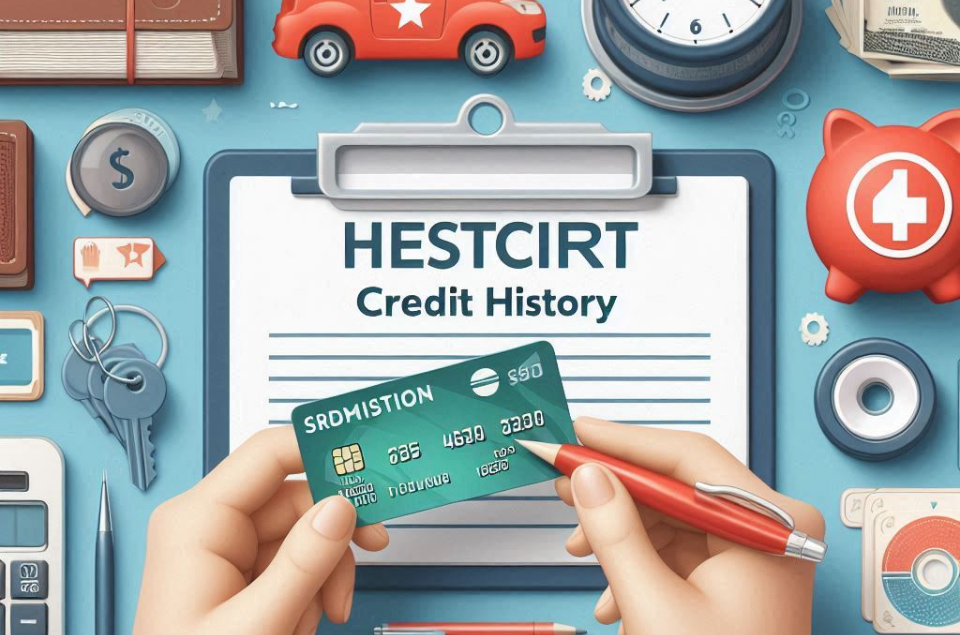
How to Start Credit History: A Simple Guide for Beginners
Introduction: Why Building Credit History is Important
Starting your credit history is like planting a tree that will grow and support you in the future. Whether you want to buy a house, get a loan for your business, or simply secure a credit card with good benefits, having a solid credit history is crucial. In India, your credit history plays a big role in how lenders, banks, and even employers view your financial responsibility. But how do you start building credit history from scratch? This blog will guide you through the simple steps to kickstart your credit journey.
What is Credit History?
Before we dive into the steps, let’s understand what credit history is. Credit history is a record of how you’ve handled debt in the past. It includes information about any loans you’ve taken, credit cards you have, and whether you’ve paid your bills on time. This history is tracked by credit bureaus and is used to create your credit score—a number that represents your creditworthiness.
1. Open a Savings or Fixed Deposit Account
Starting Point: If you’re new to credit, one of the easiest ways to begin is by opening a savings or fixed deposit account with a bank. Some banks offer credit cards against a fixed deposit. This means that the bank gives you a credit card with a limit based on your fixed deposit amount. It’s a safe way to start building credit because the bank has your deposit as security.
2. Apply for a Secured Credit Card
What is it? A secured credit card is a type of credit card that requires a security deposit. This deposit acts as collateral, so if you don’t pay your bill, the bank can use your deposit to cover the cost. Secured credit cards are a great way to start building credit because they’re often easier to get approved for, even if you have no credit history.
How to Use It Wisely:
- Use the card for small, regular purchases like groceries or mobile recharges.
- Pay off the balance in full every month to avoid interest charges and to show that you’re responsible with credit.
3. Become an Authorized User on Someone Else’s Credit Card
What does it mean? If you have a family member or a close friend with good credit, they can add you as an authorized user on their credit card. This means you get a card in your name, but the main cardholder is responsible for the payments.
Benefits: As an authorized user, the credit card’s payment history will be added to your credit report. This can help you build your credit history without having to apply for a card on your own.
4. Take a Small Personal Loan
Get Started: Some banks and financial institutions offer small personal loans to people with no credit history. These loans are usually given at a higher interest rate, but they can be a good way to start building your credit.
How to Use the Loan:
- Borrow only what you can easily pay back.
- Make regular payments on time. This shows lenders that you’re responsible and can handle debt.
5. Pay Your Bills on Time
Why it Matters: Even if you don’t have a credit card or loan, paying your bills on time can positively impact your credit history. Some companies report bill payments to credit bureaus, which can help you build credit.
Bills to Watch:
- Utility bills (electricity, water, etc.)
- Mobile phone bills
- Rent payments
6. Monitor Your Credit Report
Stay Informed: Once you’ve started building credit, it’s important to monitor your credit report regularly. You can get a free credit report from credit bureaus like CIBIL in India. Check for any errors and make sure all your information is up-to-date.
Why It’s Important: Regular monitoring helps you catch mistakes that could negatively impact your credit score. It also gives you a clear picture of how your credit history is developing.
Conclusion: Start Today for a Secure Financial Future
Building your credit history is a marathon, not a sprint. It takes time, patience, and responsible financial habits. By following the steps outlined in this guide opening a savings account, getting a secured credit card, becoming an authorized user, taking a small loan, paying your bills on time, and monitoring your credit report—you can start your credit journey on the right foot.
Remember, the sooner you start, the sooner you’ll have a strong credit history that will open doors to financial opportunities in the future. Whether you’re 22 or 50, it’s never too late to begin building your credit history.
